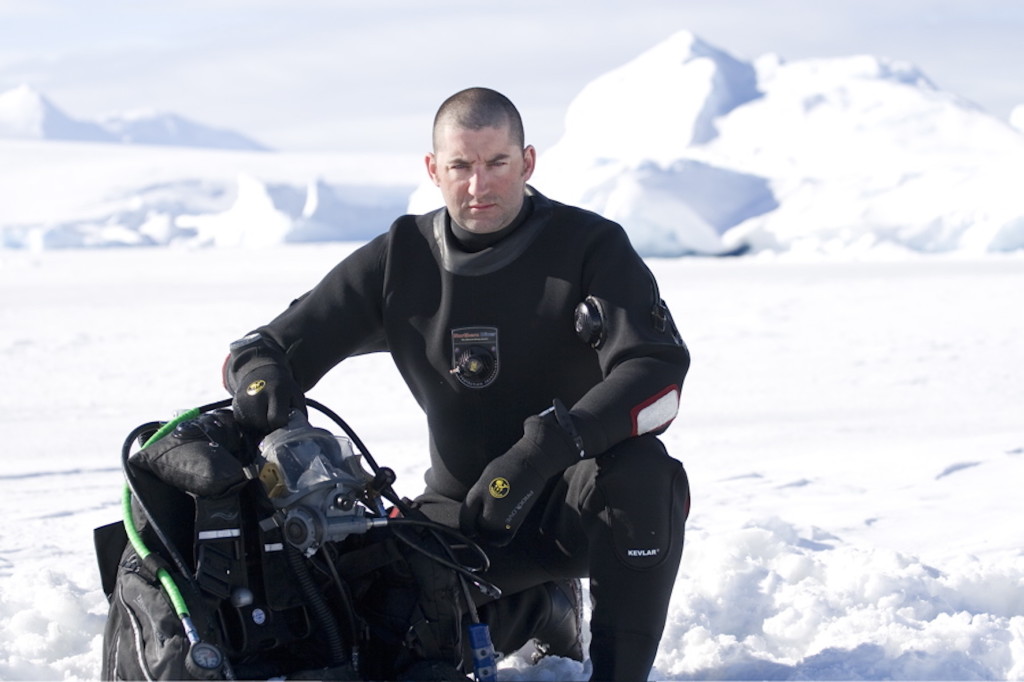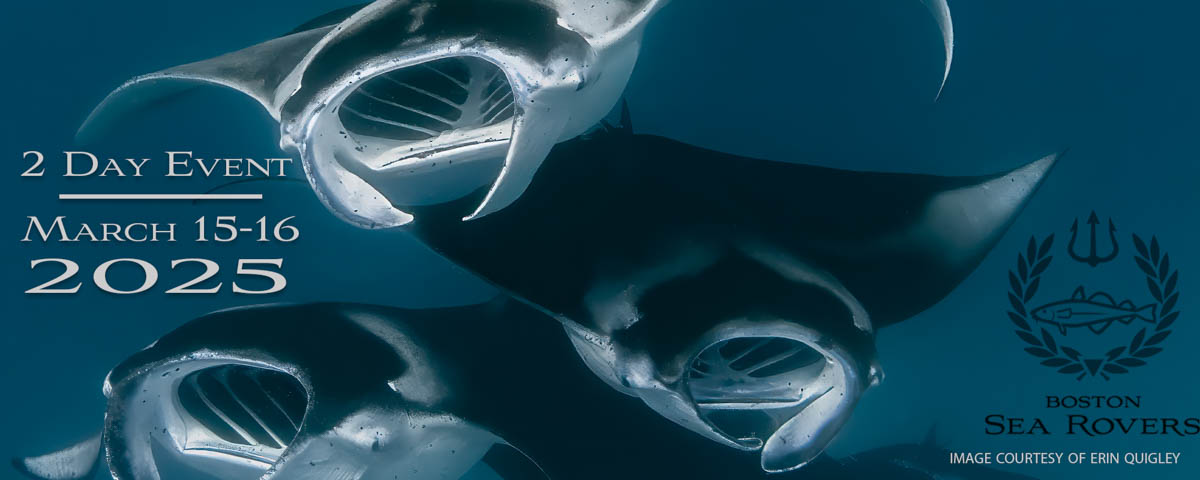Kelvin Murray is a professional diver, expedition leader and explorer specialising in remote and polar locations.
Kelvin was Field Diving Officer for the British Antarctic Survey where he managed a world-class scientific diving programme throughout the harsh polar winter. Later joining the expedition industry, he combined natural history filmmaking with leading adventurous divers in the world’s remotest locations including exploratory diving expeditions to South Georgia, Svalbard and East Greenland. Kelvin has explored every continent and every ocean, culminating in thousands of expedition dives worldwide.
Through his consultancy business Silvertip, Kelvin’s clients include expedition companies, wildlife charities, National Geographic photographers and the BBC Natural History Unit, aboard sailing yachts to Ice Class 1A Super expedition ships. A dedicated naturalist and marine conservationist, Kelvin specialises in cetaceans, seals and Polar bears, and is an ardent advocate for sharks, having dived with over twenty species
Full Name: Kelvin Murray
Age: A youthful 42
Live In: Edinburgh, Scotland
Working For: Self-employed; working with various expedition companies, RAID and Blue Abyss
Diver Qualifications: PADI IDCS Instructor and RAID Instructor (pending); TDI, NAUI and commercial certs
When and where did you start diving?
I started diving in 1996 in my home town of Aberdeen, Scotland. Cold water right from the beginning.
Why did you start diving?
I’d always been fascinated by the sea and the incredible wildlife found there. I guess a lot of kids dream of exploring and diving is a tool for getting you places that have rarely, if ever been seen by humankind. I really don’t understand why I didn’t do it sooner.
What made you choose to become a dive professional?
I’ve always wanted to be the most capable diver I can be, with whatever I’m doing. When I was a novice that meant becoming an instructor. Nowadays, I concentrate on expanding a spectrum of skills rather than climbing a ladder.
Which is your favourite dive site and why?
There’s a deep wall on Cuverville Island in Antarctica, and I’ve gone…well, pretty deep on it… Seeing huge clusters of sponges and soft corals, tunicates and other filter feeders, and 40m blades of kelp with penguins and Humpbacks in the background. It’s not a vastly different place to many other Antarctic sites, but it just seems to resonate with me.
What has been the most memorable dive of your life and why?
I came face-to-face with a truly enormous Leopard seal in the Antarctica. It made me feel like a scolded schoolboy for swimming in its hunting patch, and it was staggeringly beautiful in an ugly, intimidating way. Either that or having a Broadnosed sevengill shark swim between my knees at Inaccessible Island, Tristan da Cunha – possibly one of the most remote dive sites in the world. There are many others; hard to choose – I’ve been so privileged.
If you would come back as a marine life form in your next life, what would that be?
Polar bear. People don’t think of them as marine mammals but they are inextricably linked to a life at sea. They have a tough life but are absolute masters of their environment. Easily the most impressive beast I’ve seen.
Who is your dream dive buddy?
My son – he is two-years old and already pretends to go diving under the ice wearing some of Daddy’s equipment.
What dive locations are on your dream “bucket list” and why?
Vancouver Island and British Columbia – cold, clear, nutrient-rich water with an incredible abundance and diversity of wildlife. Russian Arctic and Alaskan waters, and the Ross Sea in Antarctica – because they are polar environments I would love to observe.
What is on your bedside table right now?
My dive watch awaiting repair, a pint of water, a drawing by my son and ‘The Master and Margherita’ by Mikhail Bulgakov.
What is your favourite piece of diving equipment and why?
I love my Poseidon Xstream Deep regulators. They are the most reliable, bulletproof regs I’ve ever used. Ideal for my polar work.
If you were to launch a campaign to raise awareness on a specific issue that affects divers, the oceans or marine life, what issue would you target and why?
I cannot stress enough how important well-managed Marine Protected Areas are for the health of our oceans. The only way we’ll have a sustainable, productive future on our planet is by stopping the rape, destruction and pollution of our seas.
Where will you be in 10 years and what will you be doing?
I’m consulting on Blue Abyss, which is going to be the world’s largest, deepest and most comprehensive underwater and aerospace training, research and development facility. We’re going to extend the work from the pool out into fieldwork and expeditions. When I’m not training astronauts I’m going to be out exploring and studying what hasn’t yet been seen in the ocean, and my son will be by my side. We have big plans. www.blueabyss.uk







